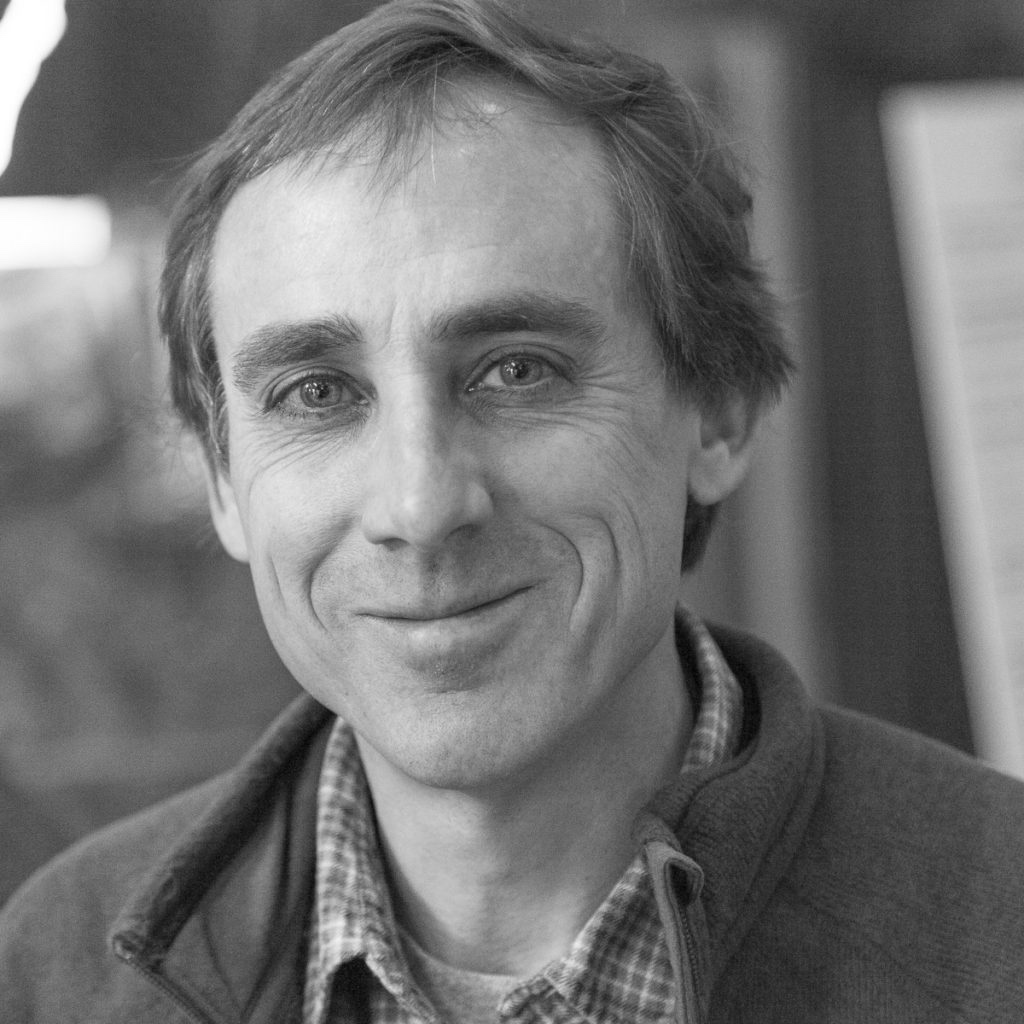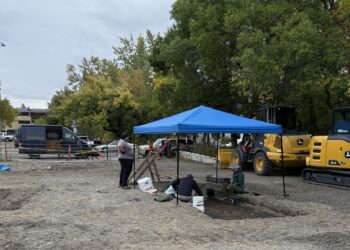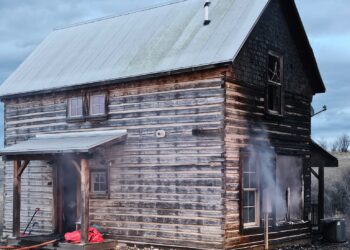
By Todd Wilkinson EBS ENVIRONMENTAL COLUMNIST
Ken Scott can speak to you about salvation within the context of skiing. Before COVID-19 struck, he and his wife Ruth had decided to spend the last days of winter as ski instructors at Big Sky. The reason is something that, once you understand why, will become unforgettable in your mind.
In part it involves a paradox of using skiing to overcome trauma—ironically, trauma that has to do with skiing.
In January, Scott was swept by not merely one but two avalanches at Silver Mountain ski area near Kellogg in the Idaho Panhandle. The first left him partially buried; the second slide that could have been triggered by other skiers, submerged Scott nine feet under the snow.
Three of seven skiers died.
What Scott endured is simply unimaginable in that, if you think about the situation, it creates the worst kind of psychological discomfort.
Imagine, as a wave of snow engulfs you, that you are churned as if by an ocean wave. All goes dark. You don’t know up from down. No part of your body, any part of it, can move. As the snow hardens, you are frozen in place barely able to breath.
You don’t know where you are and you’re pretty sure no one else is aware either. Time is transcendent and yet you almost become aware of every passing second. You start with having rational thoughts. And then you start to panic.
When you realize that panic serves no purpose, you try to calm yourself down. As the coldness affects your body and numbness sets in, you do, in a way, make peace with the sudden circumstances that overwhelmed you.
You want to close your eyes, in a realm of frozen white water that offers no light, and just drift away, accepting the seemingly inevitable. But your body does not allow you to pass out. And in a sort of subdued yet hyper-aware mental state you notice every breath you take.
And then.
And then you feel a strange sensation, like something poking you.
It’s a probe. It hits your body again but you are unable to scream or call out, “I’m here!”
The probe goes away. You feel or hear nothing for minutes. A half hour has turned to an hour or more. Time stops and moves on in the river of eternity. You ponder how life will be for your survivors after you are gone.
And then, miraculously, thanks to your ski buddy who wasn’t swept away and who helped guide rescuers to the likely approximate spot, you are excavated. On a slope measured in football fields where the slide happened, you are found. You are pulled to the surface without serious physical injury.
Thanks to Big Sky resident Tim Foote, Scott was put in touch with Bozeman psychotherapist Timothy Tate, who writes a column called “Community Psyche” for Explore Big Sky collaborator Mountain Journal (mountainjournal.org) in Bozeman. Because of his column, Tate now serves as an advisor to extreme outdoor athletes who serve as brand ambassadors for The North Face.
Scott starts working with Tate. Eventually, before COVID-19 set in, Scott tried to go back and ski at Silver Mountain, but mentally he couldn’t do it. He and his wife needed a change of scenery. They came to Big Sky and helped teach skiing, all the while he had sessions with Tate.
Tate often uses deep breathing techniques to help victims of trauma forget outside stimulus and dwell in moments without thinking. But with Scott, it was a tricky thing. Whenever he calmed himself and focused on breathing, it brought flashbacks to when, even if he tried to not breathe and pass out, his body wouldn’t let him quit.
You can read about what happened to Scott and how Tate assisted him in the two parts at Mountain Journal. But I am sharing it here because, in a way, it serves as a metaphor for these difficult days we are all in.
When events have left our lives unexpectedly transformed and with the loom of a virus or even mass economic paralysis making it possible that we can lose the world we’ve known and loved, it is important to remember, no matter how hard, to breathe.
Like Ken Scott, like the courage he has to share his story so that others might, in periods of personal agony, reach out to mental health professionals for help, we can and should too. We are not in this, trapped alone. Help is on the way.
Believe it will get better. We will see the light again. The world we encounter will be the same, but different. That differentness is an opportunity to not take anything again for granted, to see the good fortune of life, shed of any material trappings, for what it is: a gift.
When you feel overwhelmed, don’t panic: Breathe. Breathe. And keep breathing.
Todd Wilkinson is the founder of Bozeman-based Mountain Journal and is a correspondent for National Geographic. He’s also the author of “Grizzlies of Pilgrim Creek,” about famous Jackson Hole grizzly bear 399.














